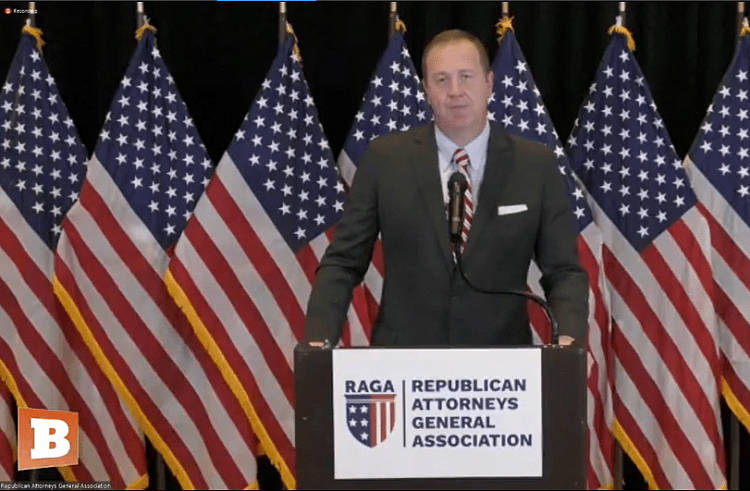Republican Attorneys General Association Challenging Some Votes In Pennsylvania

A group of 10 state attorneys general has filed a friend-of-the-court brief seeking to get the U.S. Supreme Court to reverse the Pennsylvania Supreme Court's decision to allow mail-in ballots to be counted in the state when received three days after the election, even if they are not postmarked.
The announcement came during a Monday afternoon press conference held by the Republican Attorneys General Association.
The amicus curiae (or "friend of the court") brief originated with Missouri attorney general Eric Schmitt.
Some observers say that if Republicans are successful in the case, known as Republican Party of Pennsylvania v. Boockvar, it could flip Pennsylvania from Joe Biden to Donald Trump — one of several occurrences President Trump needs in his uphill battle to secure re-election.
Last month, the United States Supreme Court declined to overrule a ruling from the Pennsylvania Supreme Court that Pennsylvania could count votes received up to three days after the election. The federal Supreme Court on a 4-4 split decision let the decision of Pennsylvania's highest court stand.
However, newly-appointed federal Supreme Court Justice Amy Coney Barrett didn't vote on that case because she wasn't yet on the court. When the case goes back to the U.S. Supreme Court, she could side with the Republican attorneys general, breaking the tie in President Trump's favor.
Schmitt, who is leading the effort, arguedthat what the Pennsylvania Supreme Court did is unconstitutional. He said that it violates Article I, Section IV of the U.S. Constitution. That passage says: "The Times, Places and Manner of holding Elections for Senators and Representatives, shall be prescribed in each State by the Legislature thereof."
Schmitt says that's not what happened.
"The Pennsylvania General Assembly expanded early voting options, but then made clear that all ballots should be received by Election Day," Schmitt said during a press conference carried live online on Monday, November 9. "The Pennsylvania Supreme Court rewrote that law. They created an overtime, extended the period of time by which those ballots can be received."
Republican attorney general Jeff Landry of Louisiana voiced his frustration with the state of Pennsylvania's decision to count votes that come in days after the election, postmarked or not, by making a football comparison.
"We believe it's akin to the referees getting to change the rules of the game midway through the football game," Landry said. "We believe that's exactly what the Pennsylvania Supreme Court did. The referees, the judges, do not get to write the rules."
He also called for all of the legal votes to be counted, and the illegitimate ones to not count so that Americans can know who won the state in the 2020 presidential election.
"Once all legitimate votes are counted and irregularities are corrected, then regardless of who the president is, the rule of law will be protected," Landry said.
Many reports say that former vice president Joe Biden leads incumbent President Donald Trump in Pennsylvania by about 45,000 votes and that Biden has won enough states to win the election. However, Trump has not conceded and made allegations of voter fraud.
The GOP state attorneys general who filed the friend-of-the-court brief say Pennsylvania's highest court exceeded its authority and created an opportunity for fraud.
"The decision provided a window of time after Election Day, when the preliminary results were announced, in which unscrupulous actors could attempt to influence a close Presidential election in Pennsylvania and elsewhere," the friend-of-the-court brief states. "And it enhanced the opportunities for fraud by requiring boards of elections to count late-received ballots even if there is no evidence that those ballots were cast before Election Day, because they have no legible postmark."

